8 Muslim Woman Characters Challenging Stereotypes in Entertainment
Teen Vogue is proudly partnering with MuslimGirl.com to celebrate the third annual #MuslimWomensDay by highlighting the real stories of Muslim women. See all our coverage here.
With so many independent, bold, brave, and creative Muslim women in the world today, it’s frustrating that pop culture has painted them with the same brush for so long. We've seen so many storylines that portray Muslim women as oppressed or angry two-dimensional characters, which perpetuate harmful stereotypes. Meanwhile, Muslim women activists, politicians, models, and more inspire young people, break barriers, and make moves to reclaim their truth every day.
For Muslim Women’s Day, we’re celebrating the fictional characters that challenge negative stereotypes and promote unapologetic resilience, strength, and courage. From superheroes to coming-of-age stories, read on for the characters paving the way for better and more relatable representation for Muslim women in pop culture.
Kamala Khan, Ms. Marvel comics
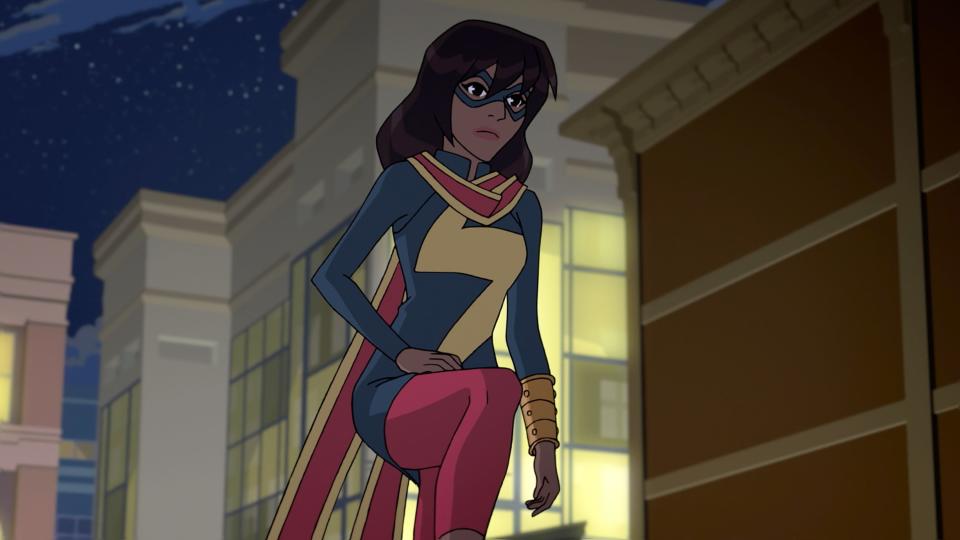
150363_0013
Getty ImagesPakistani-American teenager Kamala Khan, who moonlights as Ms. Marvel, is the first-ever Muslim superhero to get her own comic-book series. At one point, the 16-year-old even joins the ranks of the legendary Avengers. Kamala's coming-of-age story is one that’s as unique as it is relatable: As a superhero, she uses her power to shape-shift (what she likes to call "embiggening") to safeguard Jersey City from evil forces; as a young Muslim teen, she navigates the complexities that surround practicing her faith in a perilous world, tries to find the right balance living between two vastly different cultures, and eventually learns to be comfortable and confident in her own beautiful brown skin. “Being someone else isn’t liberating,” Kamala realizes. “It’s exhausting.”
While challenging stereotypes, Kamala’s narrative also gives young Muslim girls a hero they can relate to and see themselves in. “It’s rare to get stories about young Muslim girls. Ms. Marvel, we need you,” wrote sexual violence educator Farrah Khan on Twitter. Although we haven't seen Kamala in the Marvel Cinematic Universe yet, there are reportedly plans to eventually bring in the Muslim superhero.
Sana Bakkoush, SKAM
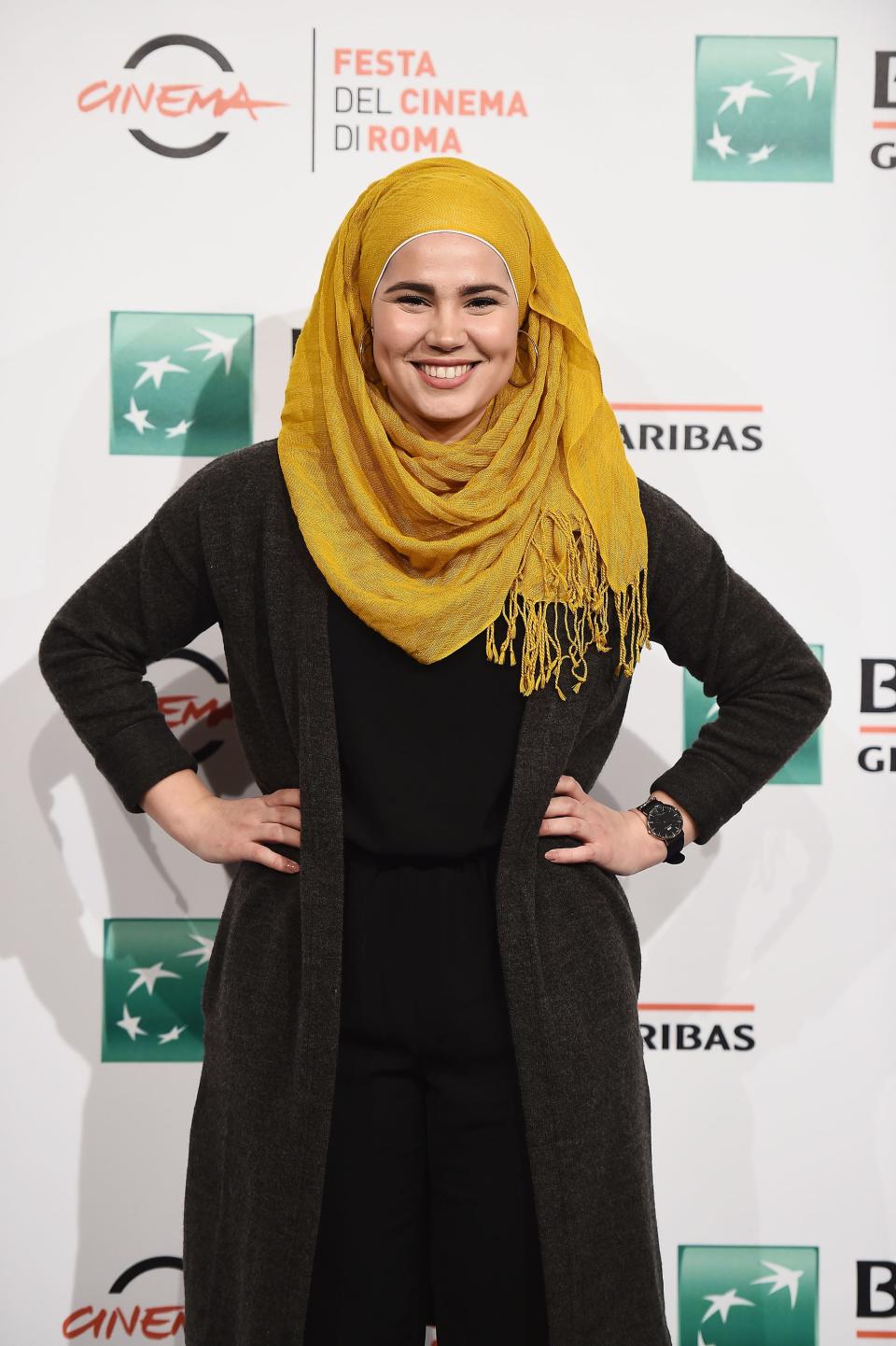
98194465
Getty ImagesWhen we first meet Sana Bakkoush (played by Iman Meskini) during season one of the popular Norwegian teen drama SKAM, she makes it clear that she’s a woman who speaks her mind, however ignorant those around her prove to be. Attending a primarily atheist high school in Oslo doesn’t make things any easier for her — Sana’s a practicing Muslim who wears a hijab, but she manages to stay true to herself. Her character is incredibly fleshed out: Sana is witty, relentless, mature beyond her years, and rocks a bold lip like it’s nobody’s business.
She busts through the myth of what a good Muslim girl looks like and serves up real talk on the fact that she alone is making the decisions in her life, all while dealing with typical teen stuff, such as parties and relationships.
Adena El-Amin, The Bold Type
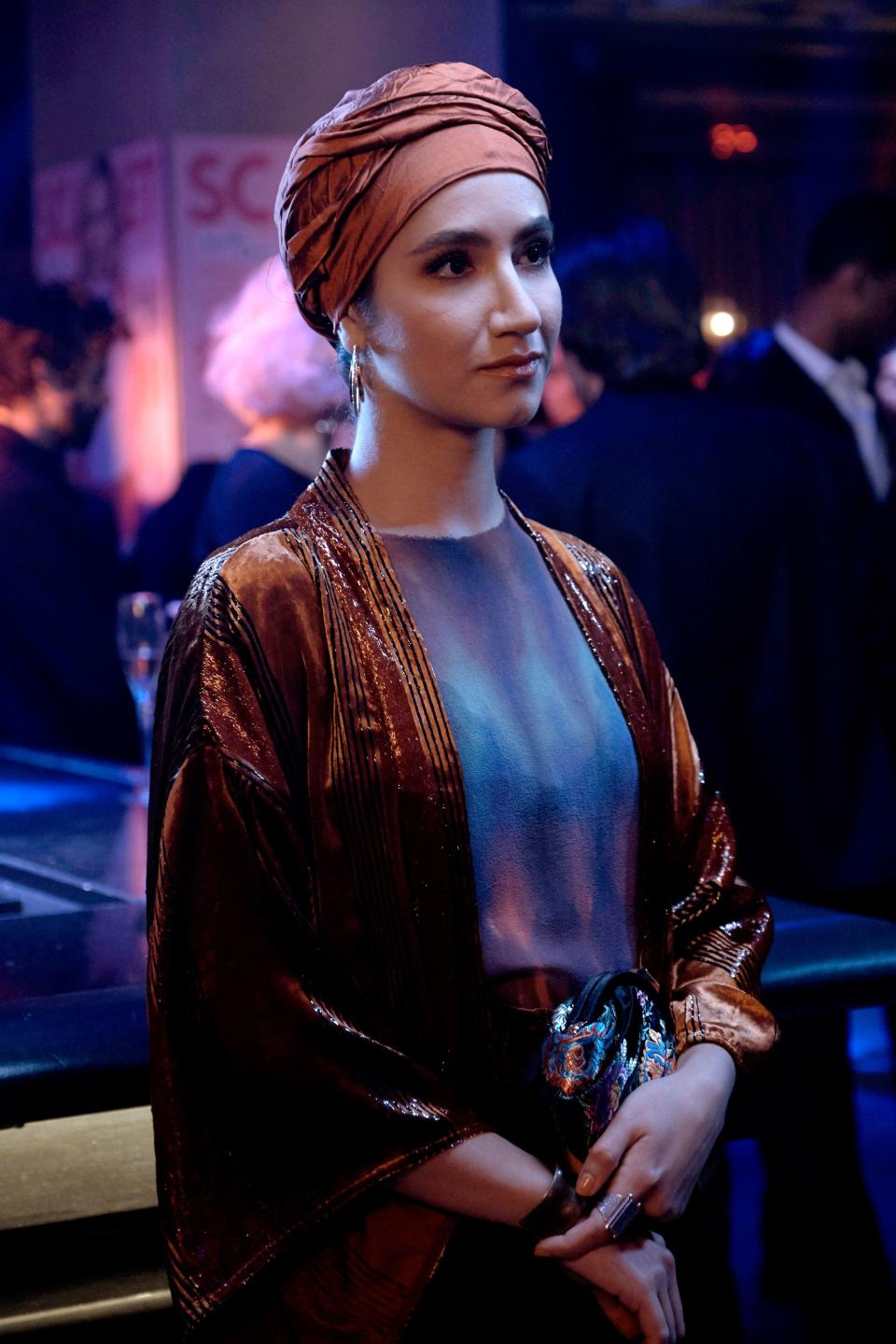
NUP_182722_0039.JPG
Getty ImagesOn The Bold Type, Adena El-Amin’s Twitter bio literally reads, “proud Muslim lesbian.” Portrayed by Nikohl Boosheri, Adena is an artist, feminist, and beautifully nuanced character. She wears the hijab and is fearlessly unapologetic when it comes to both her identity and faith. She’s admired by the women around her, including girlfriend Kat, and is quick to point out that her hijab doesn’t oppress her in any way — it’s ultimately her choice whether she wears it or not. Adena’s character speaks volumes about the inspiring strength shared by Muslim women today; she faces obstacles such as immigration issues and xenophobia but stays strong through it all. “The parts of her that have had women like her marginalized in the past seem to empower her or motivate her, and actually drive her as an individual and artist. I think there’s something really optimistic about that, especially at this time," Nikohl told Fashion magazine. It's unclear what the upcoming season of The Bold Type has in store for Adena, after that cliffhanger between her and Kat, but we're hoping to see more of the character.
Zari Adrianna Tomaz, Legends of Tomorrow
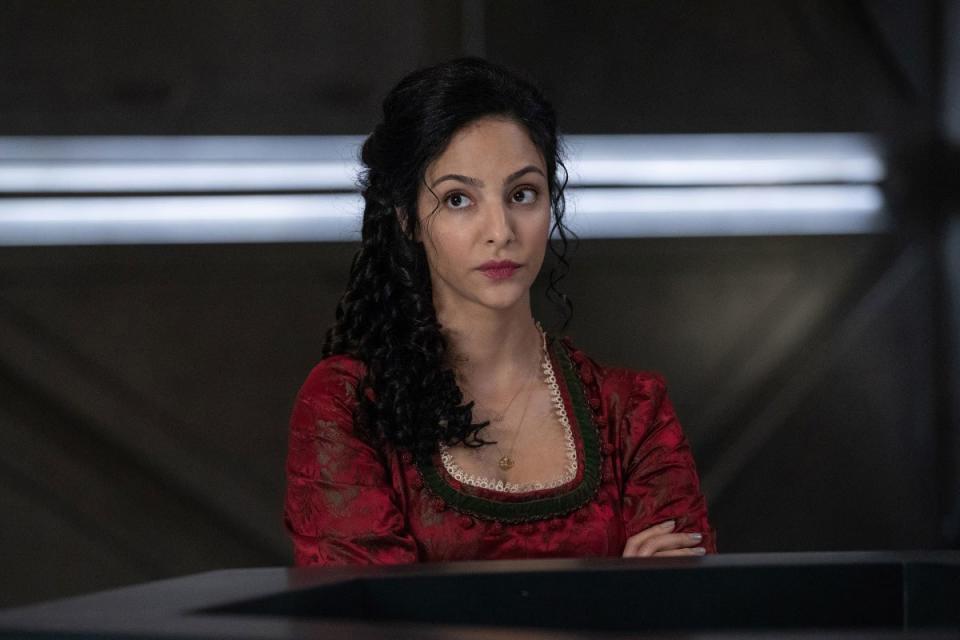
DC'S LEGENDS OF TOMORROW
Jack Rowand/ The-CWZari Adrianna Tomaz (Tala Ashe) is part of the ragtag group of superheroes on the CW's Legends of Tomorrow. The Legends first meet Zari in the dystopian future, when religion is outlawed — along with superpowers. Still, hacker-turned-hero Zari treads a fine but fierce line when she continues to stand by her beliefs without wavering, even when it means practicing her faith in secret. Eventually, she becomes the holder of the Air Totem with the ability to harness the classic element's power.
Zari’s character was created in response to the political climate that followed the 2016 presidential election, and not just for the sake of adding a Muslim character to the show; the hero was inspired by executive producer Marc Guggenheim’s sister-in-law, who is also Muslim. “She was talking about how difficult it is to be a Muslim-American in the current political climate,” Guggenheim said at the 2017 Television Critics Association press tour. And just like that, a trailblazing hero (who just so happens to be a Muslim woman) was born.
Dahlia Qadri, Grey’s Anatomy
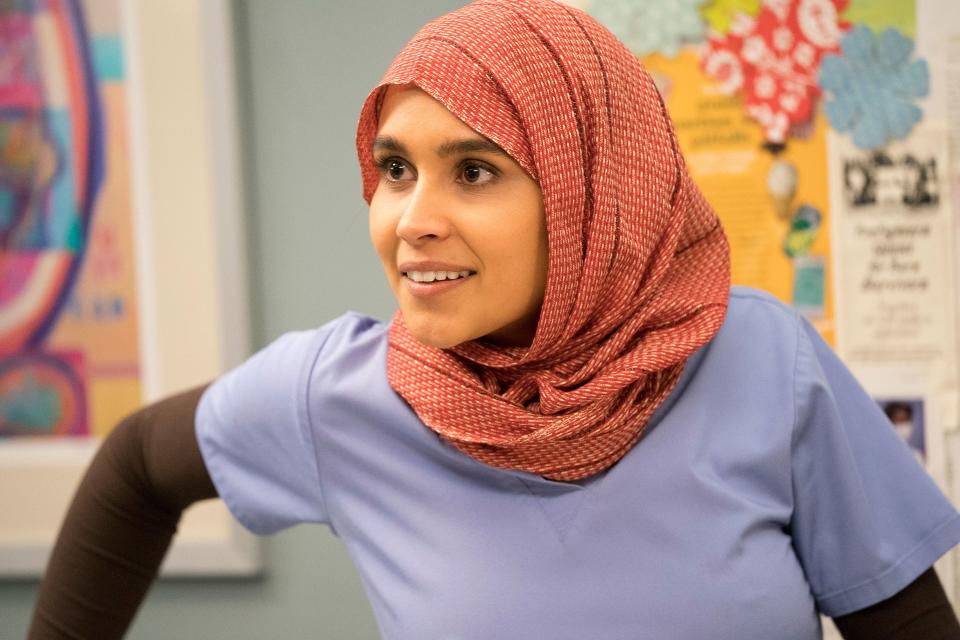
148325_7717
Getty ImagesLeave it to Shondaland to break the glass ceiling and tackle negative stereotypes in television. Season 14 of the medical drama Grey’s Anatomy saw the casting of Sophia Taylor Ali as Dahlia Qadri, a surgical intern and Muslim woman who wears the hijab. In one episode, without thinking twice, Qadri swiftly unravels her hijab and wraps it around a young boy’s injured leg in a heroic act of compassion that ultimately saves his life. When asked why she did it, she replies, “My faith is about service and compassion.”
It was a moment that resonated with many Muslims. One fan wrote on Twitter, "She took off her hijab to save a patient, then Dr. Hunt pronounced hijab correctly. 👏🏽😭👏🏽 Let me know if y'all need a hijab stylist, I gotchu sister."
Layla Amin, Internment
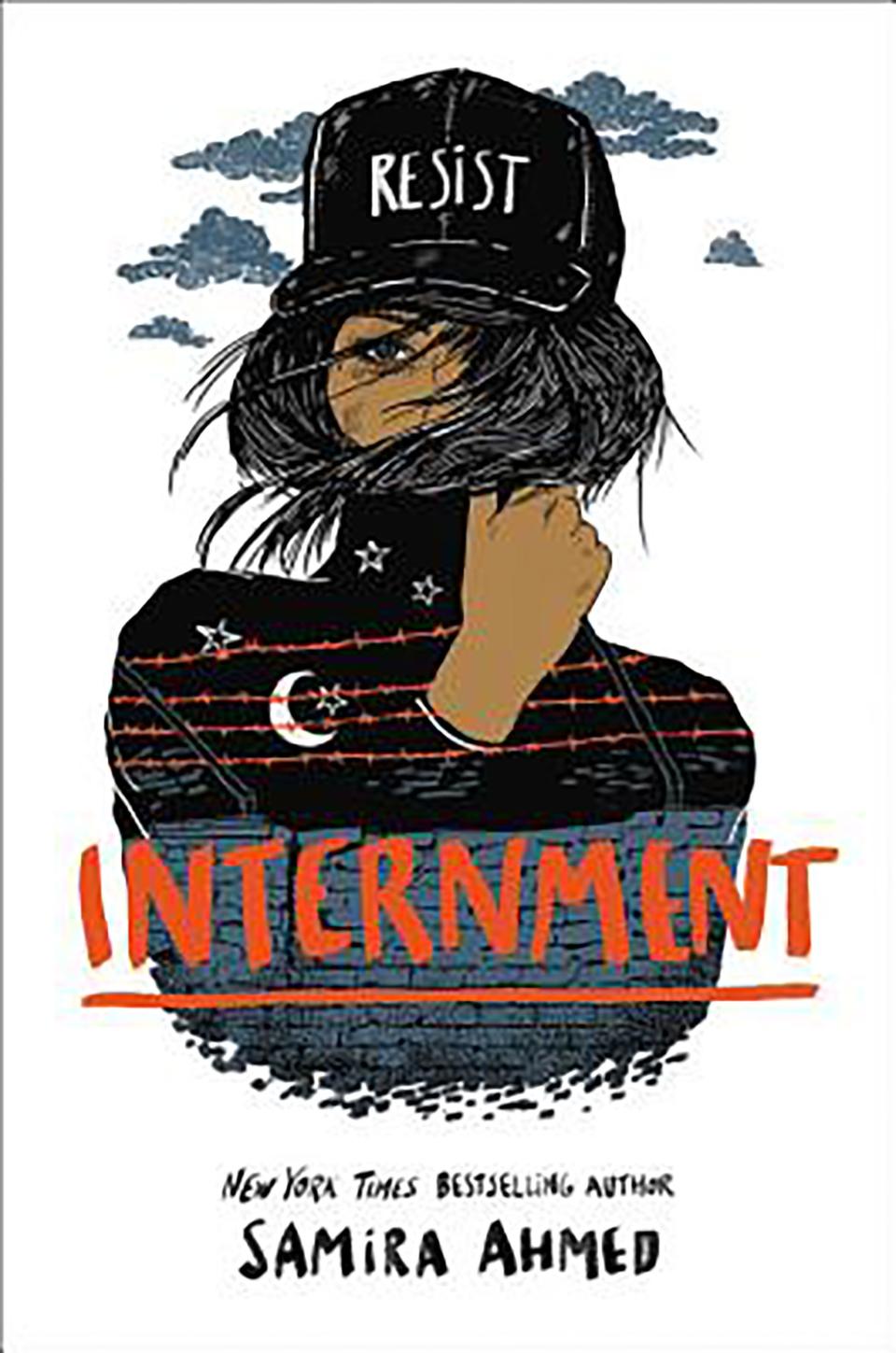
From The New York Times best-selling author Samira Ahmed comes the chilling dystopian read Internment, a novel in which the president preaches Islamophobic rhetoric and creates a divided America. Ahmed's's book follows Layla Amin, a 17-year-old who leads a revolution to free Muslim-Americans from internment camps that result from the political climate. But Layla isn’t afraid to raise her voice and rebel because it means her family, friends, and community can once again live safe and free. Layla’s story is as much about being able to drive change at any age as it is to find your voice.
Rukhsana Ali, The Love & Lies of Rukhsana Ali
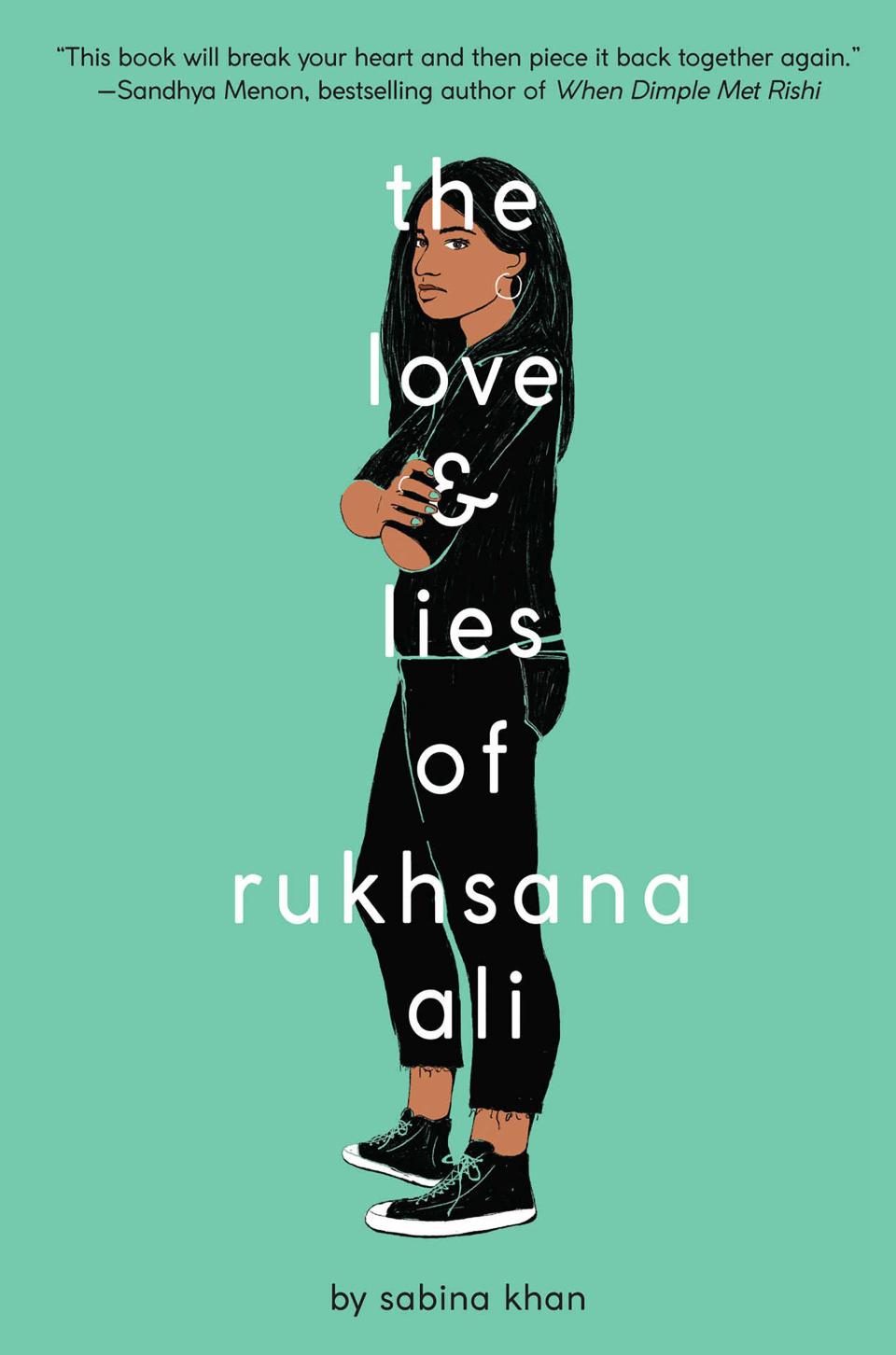
Ambitious Seattle teen Rukhsana Ali has a plan: When she graduates high school, she’ll head straight to Cal-Tech where she can further her dream of one day working at NASA and be with her girlfriend, Ariana, without tip-toeing around her conservative Muslim parents. But when her parents find out about her partner, everything changes. Rukhsana’s character courageously captures what today’s queer teen Muslim experience can look like. She speaks up to help her family understand that she can't help who she loves, but not without questioning and challenging ideas within her Muslim community.
Nadia, Elite
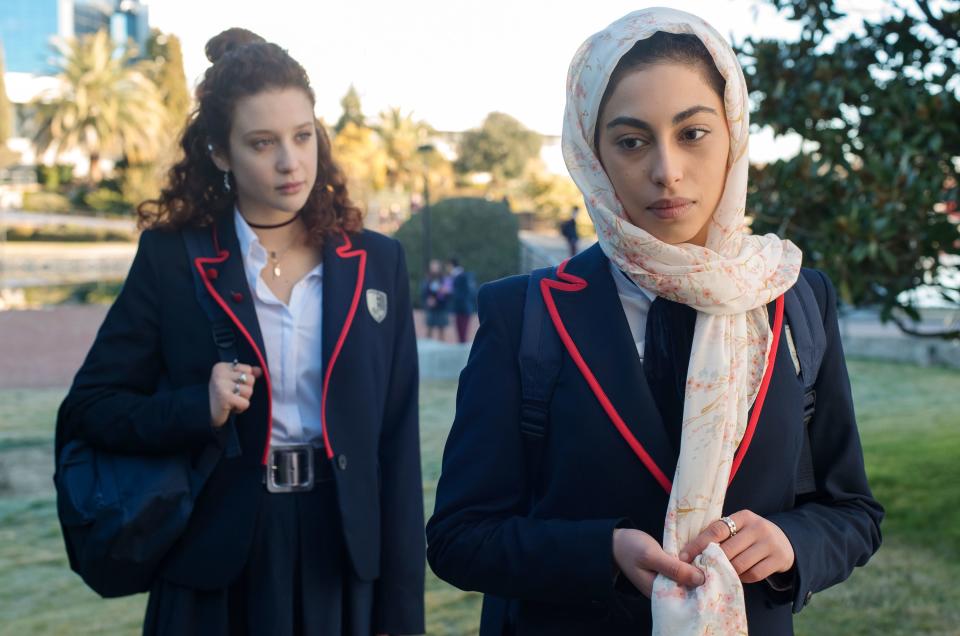
The Spanish-language high school drama Elite features Nadia (Mina El Hammania), an ambitious hijabi Muslim teen with Palestinian parents attending one of Spain's more elite private schools, Las Encinas, on scholarship. For Nadia, being the new girl means facing everything from mean girls to Islamophobia. On her first day of school, the principal tells Nadia she must remove her hijab or face being expelled. Nadia gives in because she hopes to receive the academy's prestigious award reserved for the student with the top marks, but she makes it known throughout the series that she wears her hijab on her own terms. “It’s a hijab, not a headscarf,” Nadia says to one classmate. “No one makes me wear it.”
Related: Muslim Models Breaking Barriers in the Fashion Industry
Let us slide into your DMs. Sign up for the Teen Vogue daily email.

